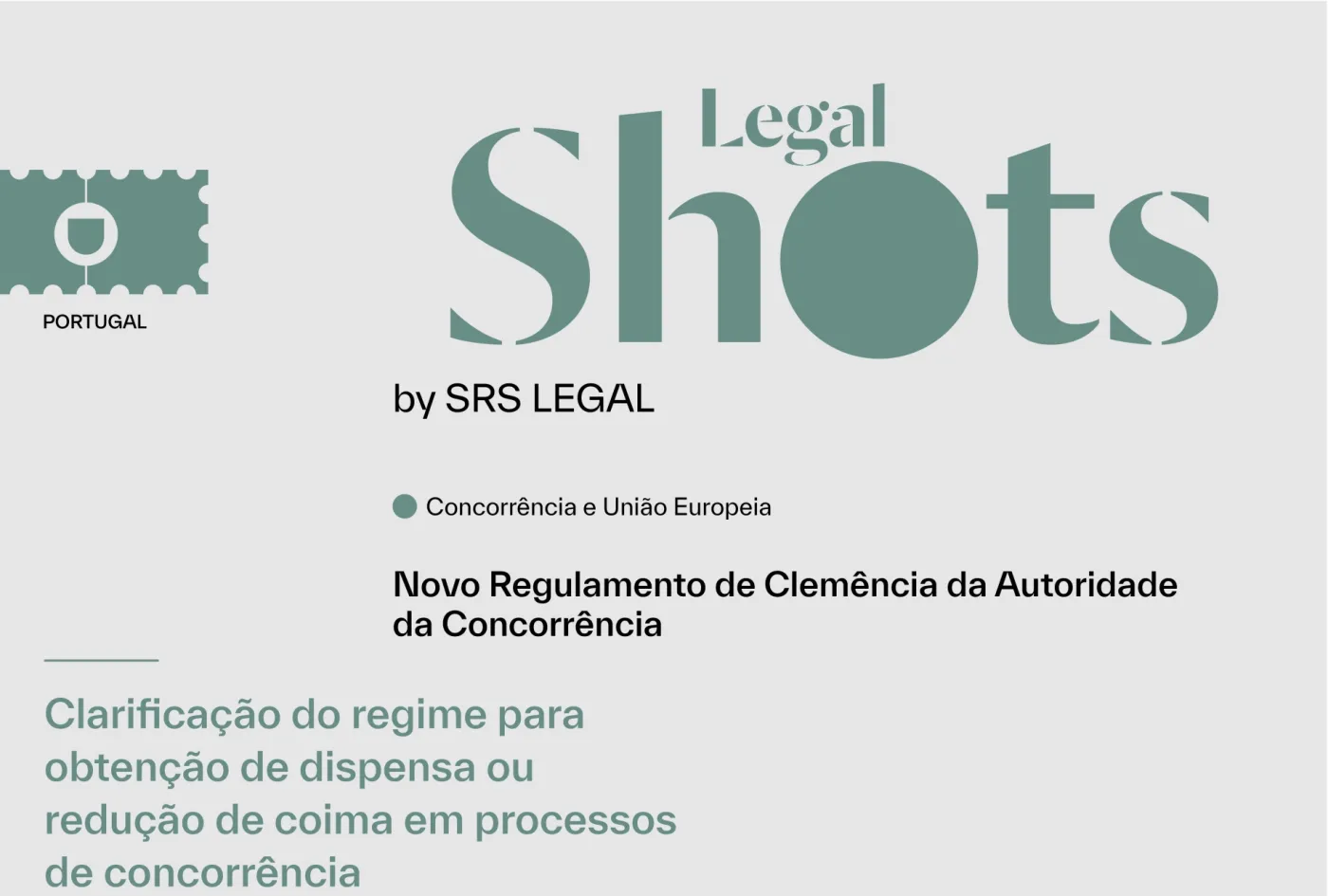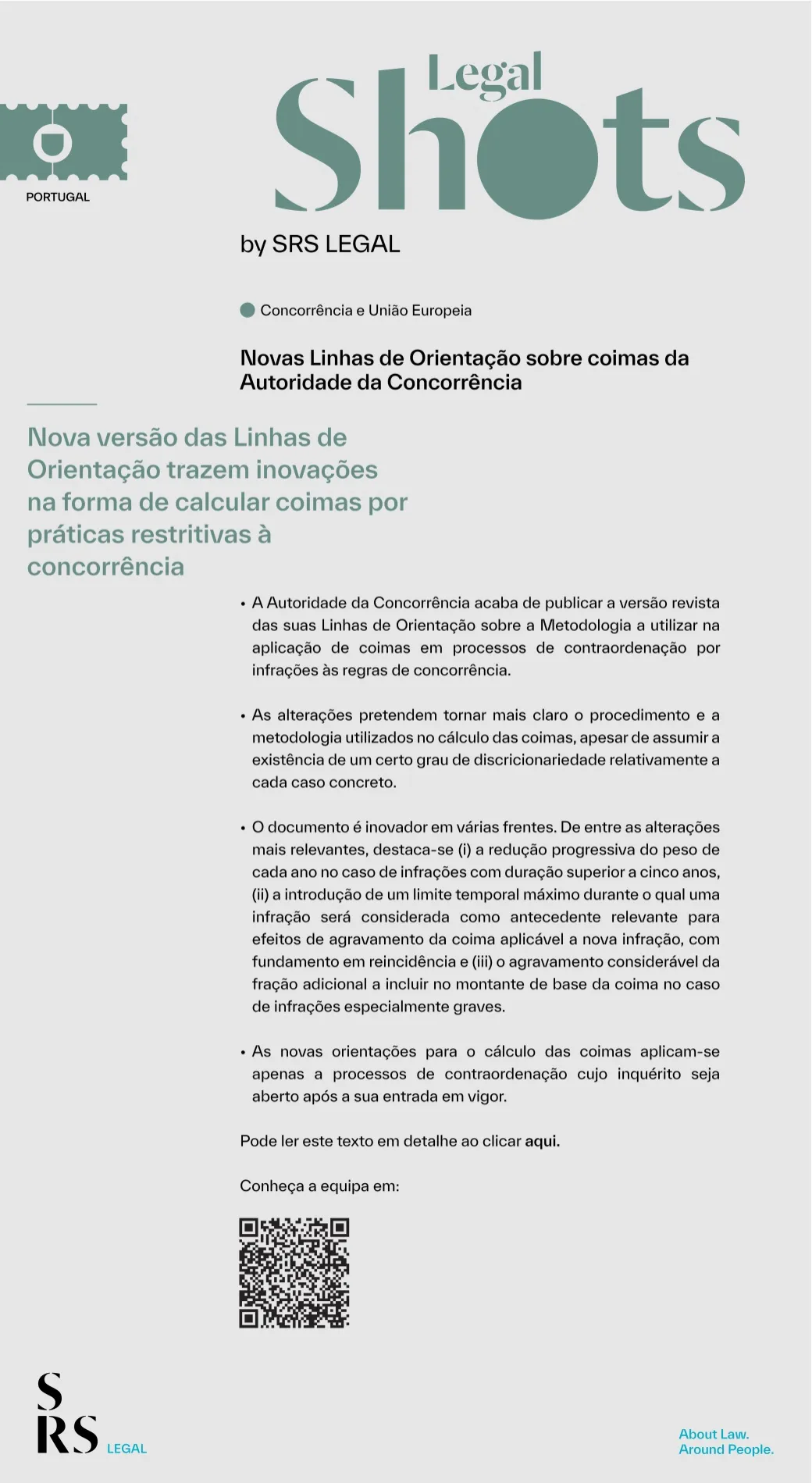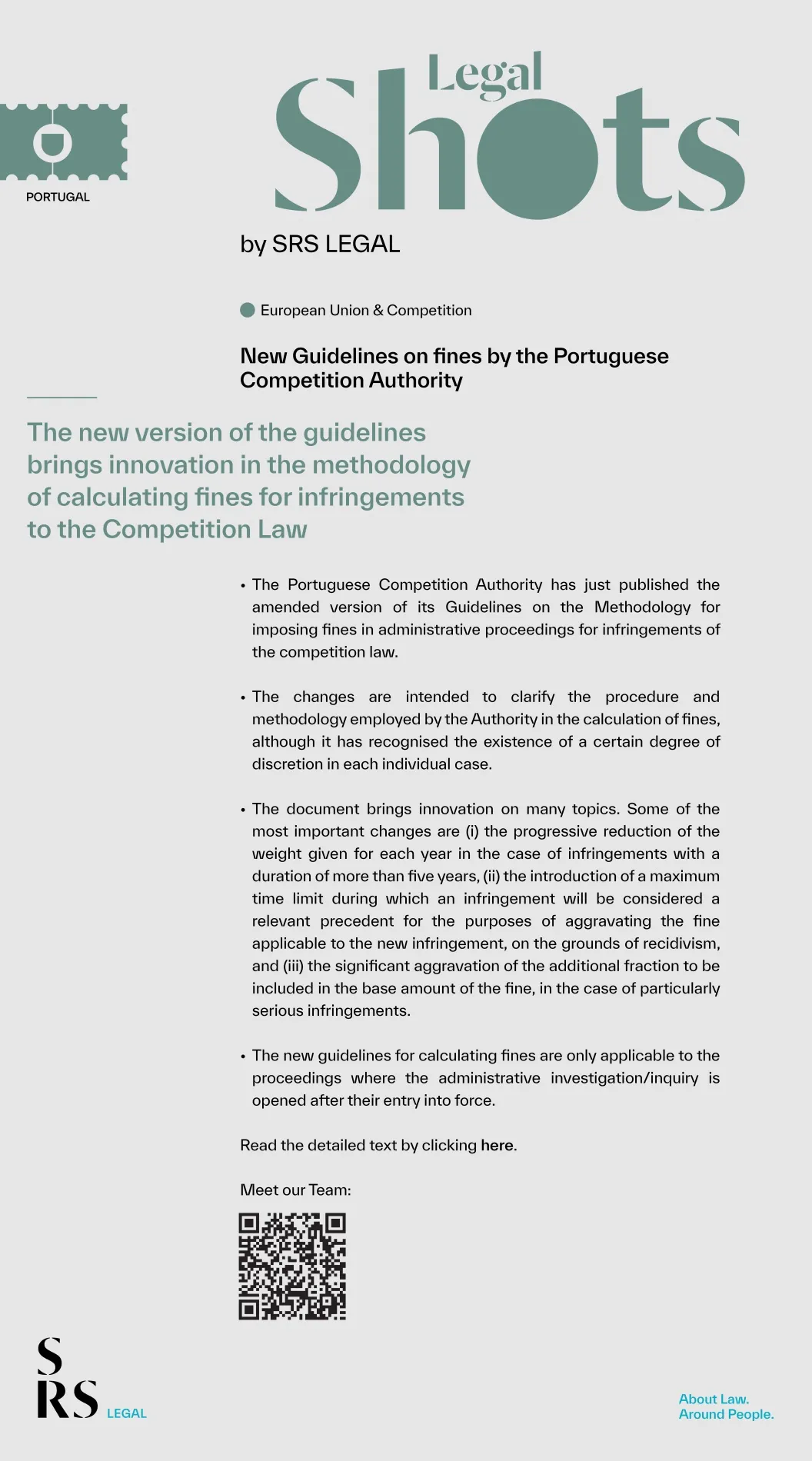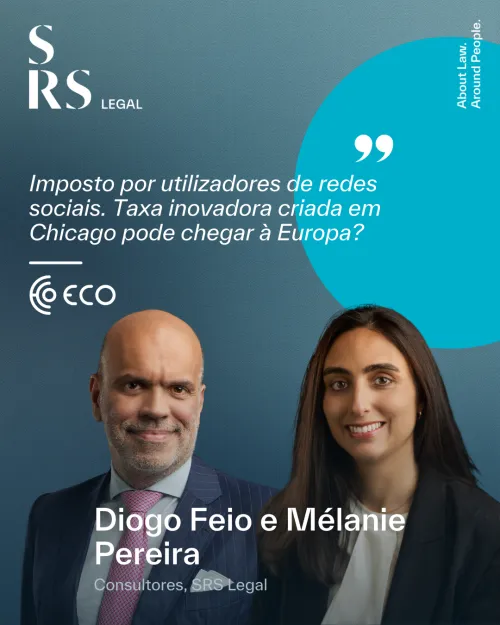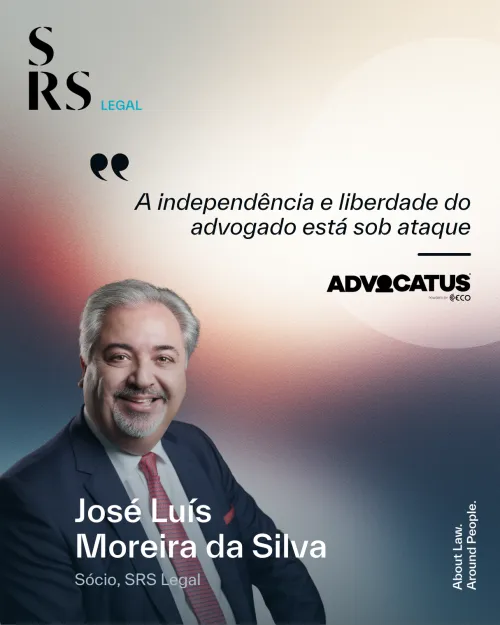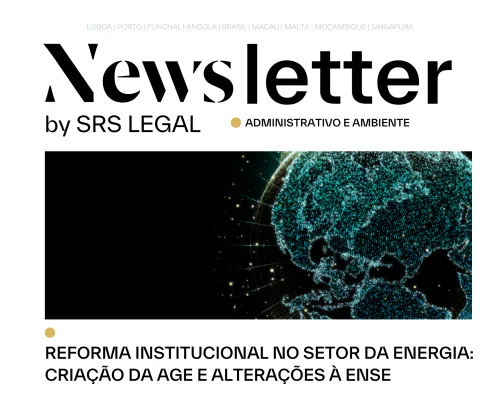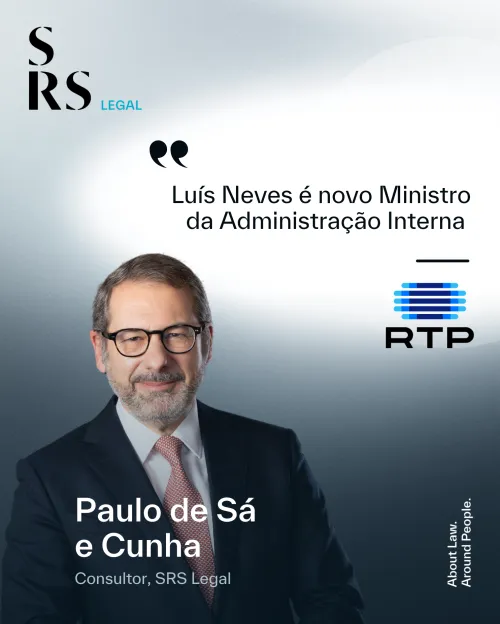Communication
SRS Legal Shots: New Guidelines on fines by the Portuguese Competition Authority
The Portuguese Competition Authority's (PCA) published last week its new guidelines establishing the methodology to be used for the calculation of fines (‘Guidelines on Fines’) in the context of administrative proceedings for infringements of the competition law established by the competition legal regime (Law no. 19/2012, of 8 May, henceforth "Portuguese Competition Act"), and of the Articles no. 101 and 102 of the Treaty on the Functioning of the European Union (TFEU).
The new Guidelines on fines, as well as other instruments recently approved by the PCA, were published following the amendment to the Portuguese Competition Act by Law no. 17/2022 of 17 August (which transposed the ECN+ Directive of the European Parliament and of the Council into national law, which aims to empower the competition authorities of the Member States to be more effective enforcers of competition law).
According to the new Guidelines on Fines, the steps to be followed in determining the fine applicable for infringements of competition law (determination of the base amount; adjustments to the base amount after verification of aggravating and mitigating circumstances; and concrete determination of the fine) remain the same. Changes do occur, however, with respect to the assessment of the relevant factors to be considered in each of these steps.
Regarding step 1 of determining the base amount of the fine, changes have been made to the use of the duration of the infringement as a multiplying factor (for cases where the calculation methodology is based on the company's turnover related to the infringements). Until now, each year of duration of the infringement had a weight equivalent to 1. With the new Guidelines, after the 5th and up to (and including) the 10th year, each year's weight will be reduced, while the period from the 10th year onwards will be disregarded for calculation purposes.
Also in this context, regarding the “particularly serious infringements” (namely, concerted practices and abusive unilateral practices to exclude or create barriers to market entry), the range of the percentage of the additional fraction of the turnover related to the infringement to be included in the base amount of the fine, previously set between 15% and 25%, was updated and was set between 15% and 30%. In other words, there was a considerable increase in the additional fraction to be included in the base amount of the fine in these circumstances.
As for step 2 of fine calculation (adjustments to the base amount), with regard to the aggravating circumstances, specifically regarding recidivism in practices that restrict competition, a time limit counted in the same terms as the statute of limitations has been established when valuing a prior condemnation for the purposes of recidivism.
The new guidelines also introduced a (previously non-existent) limit on the percentage of increase or reduction in the base amount of the fine depending on the verification of aggravating or mitigating circumstances, which was set at 50% for the first and 50% or more for the second.
Finally, with regard to step 3 (concrete determination of the fine), which comprises the assessment of the proportionality of the fine calculated under the terms of the first two steps, the PCA clarifies in greater details the indicators it will consider when assessing a potential situation of impossibility to pay the fine by a defendant, specifying that the capacity of the investigated company's shareholders to pay the respective amount should also be assessed, meaning that only those who hold 90 per cent or more of the share capital will be considered for this purpose.
It should be noted that, according to the PCA, the new Guidelines on Fines apply to the proceedings whose investigation is opened after their entry into force. For proceedings already underway, opened following the entry into force of the changes to Law No. 19/2012 introduced by Law No. 17/2022 (i.e., after 16 September 2022), the guidelines on fines published in 2012 will apply, duly adapted to reflect these changes.
According to the PCA, the aim of this revised Guidelines on Fines is, among other purposes, to clarify the procedure and methodology used by the Authority to calculate fines, rather than to obtain their prior and exact determination, assuming the existence of a certain degree of discretion in the exercise of determining such fines, given the need for a case-by-case analysis.
Companies, associations of companies and individuals who infringe competition law are subject to fines, which, under the terms of the Portuguese Competition Act:
(i) for companies, may not exceed 10% of the total worldwide turnover registered, in the financial year immediately preceding the final decision issued by the PCA, by all the legal entities that make up each of the defendant companies.
(ii) for associations of companies, may not exceed:
a) 10% of the aggregate worldwide turnover of all members of the associated companies operating in the market affected by the infringement, in case the infringement is related to the activities of the associated companies;
b) 10% of the turnover of the association of companies, in case the infringement is not related to the activities of the associated companies.
(iii) for individuals, may not exceed 10% of their gross annual labour income, including business and professional income, in the last full year in which the prohibited practice took place.

